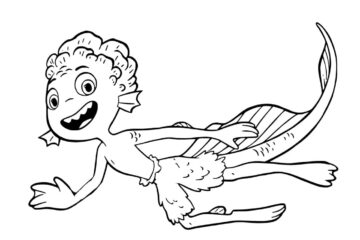The 1st World War, also known as World War I, was one of the most devastating and transformative conflicts in human history.
It reshaped nations, societies, and the global order, leaving an indelible mark on the collective consciousness. To truly understand the profound impact of this war, one must delve into the plethora of literature that emerged from it.
This article explores various 1st World War books, offering insights and perspectives that help us comprehend the complexities and human experiences of this monumental event.
The Historical Context of World War I
Before getting into specific books, it’s important to understand the historical context of World War I. The war kicked off in 1914 and wrapped up in 1918, pulling in major world powers split into the Allies and the Central Powers.
It all started with the assassination of Archduke Franz Ferdinand of Austria, and then things quickly spiraled into a global mess because of alliances, militarism, imperialism, and nationalism. This led to an incredibly huge and brutal war, known for trench warfare, new weapon tech, and huge casualties.
Notable 1st World War Books
Now that you have an understanding of the historical backdrop, it’s time to dive into some notable books about World War I. Here are a few top picks:
“All Quiet on the Western Front” by Erich Maria Remarque
“All Quiet on the Western Front,” one of the most famous World War I books, gives a chilling look at the war through a German soldier’s eyes.
Remarque’s novel delves into the physical and mental struggles soldiers endure, vividly showing the harsh reality of trench warfare and the disillusionment felt by those in battle. Its anti-war message struck a chord with readers globally, serving as a stark reminder of the senselessness and brutality of war.
“Goodbye to All That” by Robert Graves
Robert Graves’ autobiography, “Goodbye to All That,” gives a real and honest look at his time as a British officer in World War I. The book stands out for its vivid descriptions of trench life, soldier camaraderie, and how the war shaped Graves’ views. Looking past the battles, Graves also talks about how the war influenced social and cultural shifts, offering insights into the war’s wider impact.
“A Farewell to Arms” by Ernest Hemingway
Ernest Hemingway’s “A Farewell to Arms” is a classic novel. It mixes a love story with the harsh realities of World War I. Hemingway drew on his own experiences as an ambulance driver in Italy. The book explores themes of love, loss, and the senselessness of war.
The protagonist’s journey reflects the broader disillusionment felt by many during and after the conflict. Hemingway’s spare and powerful prose makes this one of the most enduring works of literature about the war.
Diverse Perspectives in 1st World War Books
One of the most powerful aspects of literature is its ability to offer diverse perspectives on a single event. This is especially true for books about World War I, which was a global conflict that affected people from all walks of life.
Voices from the Home Front
Many 1st World War books delve into soldiers’ experiences, but it’s crucial to also explore the home front perspectives. Books, such as “The Home Front: A Mirror to Life in England During the First World War” by Sylvia Pankhurst, offer valuable insights.
They show the societal changes and challenges civilians faced. They shed light on women’s roles, economic struggles, and the emotional weight of waiting for news from the front lines.
Global Contributions and Experiences
World War I was a huge global conflict. Literature from different countries shows the varied experiences of those involved. Like, “Indian Voices of the Great War” edited by David Omissi, which collects letters from Indian soldiers in the British Empire.
The letters offer a unique view of the war. They share the hopes, fears, and experiences of soldiers from diverse backgrounds. Books such as “Forgotten Soldiers of World War I” by David A. Steinberg also highlight the contributions of African, Asian, and Caribbean troops.
The Impact of World War I on Literature
World War I stories really shook up modern literature. The war’s brutality and departure from old-school values sparked fresh writing styles and themes.
Poets like Wilfred Owen, Siegfried Sassoon, and Rupert Brooke show how war affected literature. They depicted horrors in the trenches and societal uncertainties. This move towards realism and exploring the human psyche in writing can be traced back to the WWI authors’ experiences.
Personal Narratives and Memoirs
World War I also saw a rise in personal narratives and memoirs, as soldiers sought to tell their own stories and make sense of their experiences.
“Storm of Steel” by Ernst Jünger
Ernst Jünger’s “Storm of Steel” is a memoir that really stands out for its detailed and unapologetic portrayal of combat. Unlike many other World War I books, Jünger’s account shows a real fascination with the war experience.
His story captures the adrenaline, chaos, and soldier camaraderie. It offers a unique view of the conflict. While some find it controversial for glorifying war, “Storm of Steel” gives valuable insights into a soldier’s mindset.
“The War Poems” by Wilfred Owen
Wilfred Owen’s “The War Poems” hit home with the pain of World War I. In works like “Dulce et Decorum Est” and “Anthem for Doomed Youth,” Owen vividly shows the horrors of the trenches. He uses sharp images and raw emotion.
His poems call out the glorification of war, shining a light on the suffering and pointlessness faced by soldiers. Owen’s writing is one of the most moving and powerful works of literature from that time.
Immerse Yourself In The Epic World of 1st world war books
The abundance of 1st World War books gives us a rich understanding of the conflict, its causes, and its outcomes. Books on WWI offer valuable insights. They cover history, personal accounts, and fiction.
They depict the harsh realities, heroism, letdowns, and lasting effects of the war on people and communities. By delving into these different viewpoints, readers can grasp a better understanding of the war. They can also learn about its complexities and enduring impact.
Keep exploring! Dive into our diverse collection of articles spanning a broad array of topics on our blog like Abraham Quiros Villalba An Inspiring Journey.




